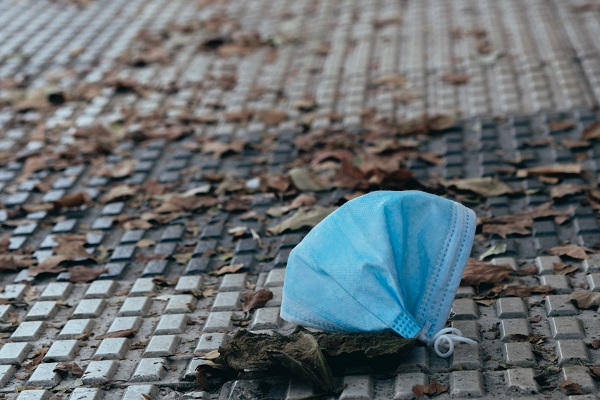Is Biodegradable Better?
 Hamish | Hygiene Technician
Hamish | Hygiene Technician
In this Covid-affected world, most of us will have experienced an upturn in usage of disposable and single use products. And many of us are rightly concerned to decrease environmental impacts, and will be looking for ways to reduce single use plastics – one major group of which is Bags, Sacks and Bin Liners. So what is the best way to go?
Is Biodegradable Better?
It’s the word on the street, on everyone’s lips and Cleaning and FM professionals have probably experienced a steady trickle of enquiries – but what should your response be when asked for “Biodegradable Sacks” (or “Biodegradable Black Bags” or Clear Bags or whatever)?
Firstly, what is “biodegradable”?
Good question: technically it means ‘capable of being decomposed by bacteria or other living organisms. However, there is no legal standard or definition for what products can claim biodegradability, and some products have claimed this where only 20% of the product has actually been proved to biodegrade. Additionally, some polythene products have been marketed in the past as ‘biodegradable’ or oxo-degradable with the following issue arising;
In addition, oxo-degradable plastics are commonly perceived to be biodegradable. However, they are simply conventional plastics with additives called prodegredants that accelerate the oxidation process. While oxo-degradable plastics rapidly break down through exposure to sunlight and oxygen, they persist as huge quantities of microplastics rather than any biological material. Kubowicz, Stephan; Booth, Andy M. (2017-11-07). "Biodegradability of Plastics: Challenges and Misconceptions".
Also, the additives have a tendency to lead to degradation in storage, sometimes causing double-bagging or discarding of faulty product, with a negative environmental impact arising. And the presence of these chemicals can taint recycling batches, causing it to fail performance standards and to be scrapped, even when present in only a very low percentage of the recycling material.

OK, so what about compostable?
That’s a bit better – there is a legal standard for Compostability. However, it is only relevant if the waste is either being sent to IVC (In Vessel Composting) or home composting. Waste sent to Anaerobic Digestion or AD (commonly used for domestic food waste collections) or Open Windrow (generally for Green / Garden or Landscaping waste only) cannot generally include compostable plastics as the film degrades too slowly and can cause clogging in the processing equipment.
Additionally, compostable bags are typically several times thicker than their polythene counterparts, and require up to 5x the energy to manufacture, so the overall picture isn’t quite so clear… it is worth bearing in mind that a compostable rubbish bag is only ever relevant where it is going to contain compostable waste, and included in a waste stream going to IVC
A further consideration is that heavier bags mean additional transport and emissions.
So, is traditional polythene a big problem?
Virgin polythene is primarily derived from oil, so is a consumer of finite fossil-based resources. However, the great majority of bags and sacks are derived from Post-Consumer recycled material or process waste from other manufacturing. Polythene is very suitable for containing waste, being waterproof, relatively strong for its weight / thickness, and relatively low energy intensity to manufacture. It is also readily recyclable, where the waste stream is correctly captured - however if it ends up in EFW (Energy From Waste) plants, the relatively high calorific value and clean combustion products make it a good source for electricity generation.
So, what can I do to help then?
At this stage the best things we can all do are;
1) To maximise the sorting of recyclable materials, and ensure that as much material as possible is recovered and reused.
2) Use the smallest and thinnest bag appropriate to the task in hand – too big is just a waste of polythene (and transport); too thick a product is likewise a waste, and too thin leads to waste via double-bagging, or worse split bags and the ensuing clean-up process
Need help finding your ‘goldilocks’ product? Neither too hot nor too cold, too hard nor too soft? Call us on 01243 771340 to speak to an advisor.




